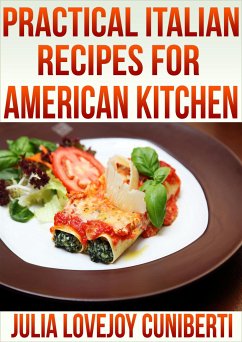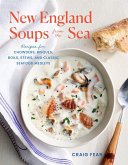The housewives of the old world have much to teach us in thrift, especially in the kitchen. Italian cooking—not that of the large hotel or restaurant, but the cucina casalinga of the little roadside hostelry and of the home where the mother, or some deft handmaid trained in the art from infancy, is priestess at the tiny charcoal stove—is at once so frugal and so delicious that we do well to study it with close attention.If you have ever sat at a snowy table in the garden of some wayside inn in the Appennines, a savory dish of risotto before you and the music of the mountain torrent far below in your ears; or sipped a zabaione in the portico of a cafe on the sun-baked piazza of some brown old town clinging to a hillside of Umbria; or eaten fritto misto on a pensione terrace overhanging the sapphire Gulf of Naples, one of those inimitable haunts of comfort kept by a handsome Italian dame who served her apprenticeship in Anglo-Saxon ways as an English lady’s maid; if any of these experiences have been yours you do not need to be convinced of the inimitable charms of the Italian cuisine.The Italian housewife uses quantities of vegetables, many soups and made dishes containing only a small proportion of meat and that the inexpensive cuts. Vegetable salads are a staple, while fresh or dried fruits, coffee, cheese and nuts are the regular dessert. The elaborate creations for which the Italian confectioner is justly famous are reserved for festal occasions.At first reading many of the recipes may sound elaborate, but in using them it is well to bear in mind the general plan of the Italian menu. Each dish is usually served as a course in itself. A good soup, a savory dish of spaghetti, rice or vegetables combined with meat, a crisp salad dressed with oil and vinegar, followed by a piece of fruit, a bit of cheese and black coffee make a characteristic Italian meal and one with which an epicure could find no fault. It is a meal, moreover, in keeping with the suggestions of our Food Administrator that we use a minimum of meats and sweets and a maximum of soups, fruits, vegetables, made dishes and cheese.
Bitte wählen Sie Ihr Anliegen aus.
Rechnungen
Retourenschein anfordern
Bestellstatus
Storno









